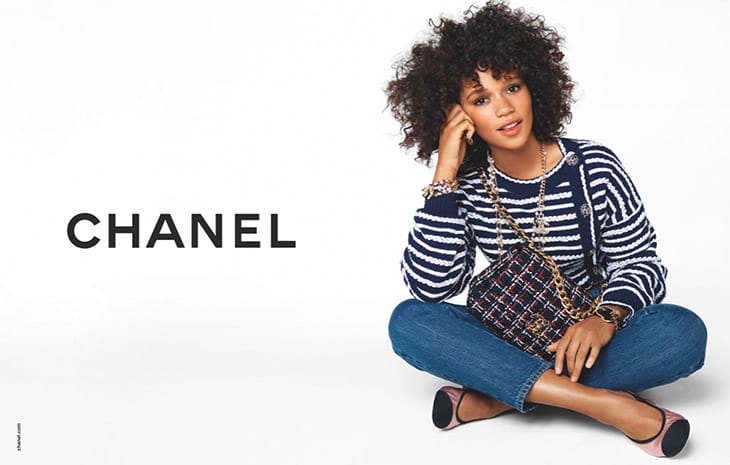Luxury brands are synonymous with elegance, sophistication, and exclusivity. They represent the epitome of quality, craftsmanship, and attention to detail. Understanding the key features of luxury brands is essential for consumers who seek to indulge in the finest products and experiences. In this article, we will delve into the various aspects that define luxury brands and explore why these features are crucial in the world of luxury.
1. Quality and Craftsmanship
Quality and craftsmanship are at the core of luxury brands. These brands prioritize using the finest materials and employing skilled artisans to create products built to last. From meticulously hand-stitched leather goods to intricately crafted timepieces, luxury brands leave no stone unturned to ensure exceptional quality. Brands like Hermès, known for their impeccable craftsmanship in their iconic Birkin bags, and Rolex, renowned for their precision in watchmaking, exemplify the commitment to quality luxury brands embody.
2. Exclusivity and Rarity
Exclusivity and rarity are key elements that distinguish luxury brands from mass-market products. Luxury brands often produce limited quantities of their products, making them highly sought after and exclusive. This exclusivity creates a sense of desirability and prestige among consumers. Brands like Chanel, with their limited edition handbags and clothing collections, and Rolls-Royce, known for their bespoke automobiles tailored to individual preferences, epitomize the allure of exclusivity and rarity in luxury.
3. Heritage and Tradition
Heritage and tradition play a significant role in luxury brands. These brands often have a rich history that spans decades or even centuries, rooted in timeless craftsmanship and design. Luxury brands embrace their heritage and traditions, incorporating them into their products and experiences. Brands like Louis Vuitton, founded in 1854 as a trunk maker, and Tiffany & Co., established in 1837 as a jewelry retailer, have successfully maintained their legacy while evolving.
4. Personalization and Customization
Personalization and customization are increasingly becoming important features in luxury brands. Luxury consumers seek products that reflect their individuality and unique tastes. Luxury brands offer personalized services, allowing customers to customize their products to suit their preferences. Brands like Burberry, offering monogramming services on their iconic trench coats, and Montblanc, providing bespoke engraving on their writing instruments, cater to the desire for personalization and customization in luxury.
5. Attention to Detail
Attention to detail is a hallmark of luxury brands. From the stitching on a garment to the finishing touches on a piece of jewelry, luxury brands leave no detail overlooked. Every aspect of a product is meticulously crafted to perfection, resulting in an exquisite end result. Brands like Gucci, known for their intricate embroidery and embellishments, and Bvlgari, celebrated for their meticulous gemstone setting, exemplify the unwavering commitment to attention to detail that luxury brands embody.
6. High Price Point
The high price point associated with luxury brands is often a point of contention for consumers. However, it is important to understand that the price reflects the quality, craftsmanship, exclusivity, and other key features that define luxury brands. Luxury brands invest heavily in sourcing the finest materials, employing skilled artisans, and maintaining exceptional standards throughout the production process. The limited availability and exclusivity of luxury products also contribute to their higher price point. Brands like Hermès and Rolls-Royce command premium prices due to their commitment to excellence and exclusivity.
7. Iconic Branding and Logos
Iconic branding and logos are synonymous with luxury brands. These brands have created timeless logos and branding elements that are instantly recognizable worldwide. The logo itself becomes a symbol of status and prestige. Brands like Louis Vuitton, with its iconic LV monogram, and Gucci, with its interlocking G logo, have successfully established themselves as global luxury powerhouses through their iconic branding and logos.
8. Exceptional Customer Service
Exceptional customer service is a defining feature of luxury brands. Luxury consumers expect a personalized and seamless shopping experience from the moment they enter a store to after-sales support. Luxury brands train their staff to provide impeccable service, ensuring every customer feels valued and attended to. Brands like Ritz-Carlton, renowned for their exceptional hospitality, and Apple, known for their knowledgeable and attentive staff, prioritize customer service as a crucial aspect of the luxury experience.
9. Limited Edition Collections
Luxury consumers highly covet limited edition collections. These collections offer unique and exclusive products, often produced in limited quantities. Luxury brands create limited-edition collections to satisfy their customers’ desire for exclusivity and rarity. Brands like Dior, with their limited edition runway collections, and Patek Philippe, renowned for their limited edition timepieces, captivate consumers with their limited availability and collectible nature.
10. Innovation and Technology
Innovation and technology are not often associated with luxury brands, but many embrace these elements to enhance their products and experiences. Luxury brands leverage cutting-edge technology to improve functionality, performance, and design while maintaining the highest quality standards. Brands like Tesla, who are revolutionizing the automotive industry with their electric vehicles, and Apple, who are pushing boundaries with their innovative devices, showcase how luxury brands can seamlessly integrate innovation and technology into their offerings.

















